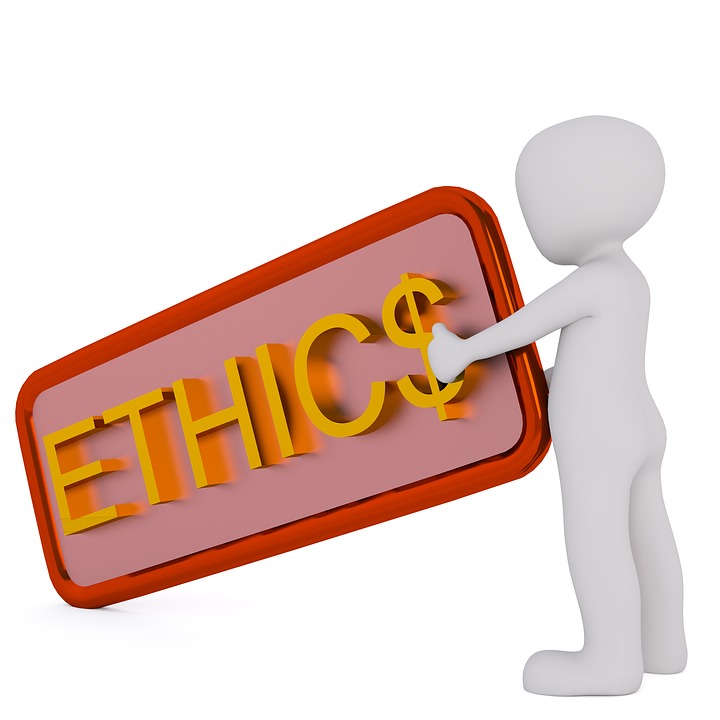You Can’t Put A Price Tag On The Value Of Ethical Business Practices
Partnered Content.
In the twenty-first century landscape, many nascent entrepreneurs could be forgiven for thinking that they can eschew ethics for the sake of gaining a market share. The modern business landscape is, after all, a harsh and unforgiving climate, where the economic and legislative deck is stacked against the earnest small business. We live in an era characterized by fickle customers, fierce competition and unforgiving market conditions where small businesses have to jump through myriad hoops to keep up with the multinational corporate giants who can offer your customers a cheaper product because of the sheer volumes in which they buy, sell and produce. Surely, under conditions like these, new businesses can be forgiven for putting their margins ahead of their ethics, right?

Wrong!
Although entrepreneurs are perfectly justified in their desire to keep overhead costs down and keep margins as healthy as possible, there’s a whole lot more to good business practice than your profit margin. Let’s not forget that we live in the digital age, and consumers not only have access to a greater range of suppliers than ever before for the products they want, they have greater access to the information behind those suppliers. While your financial concerns may be prudent, ethical business practices are always a good investment.
It’s not about the price tag
In the words of the poet and philosopher Jessie J… It’s not about the money, money, money. Of course, money greases the wheels of business and a healthy cash flow allows businesses to operate, grow and expand. But from a consumer’s point of view, an enterprise needs to have more on its agenda than taking their money. It’s not enough to merely operate as we move closer to the 2020s, a business needs an ethos. Besides, making money and incorporating ethical business practice is not a binary choice for small businesses.
Remember why customers are drawn to small businesses rather than the corporate leviathans in the first place. If you’re the sort of consumer that deliberately chooses small businesses over the big multinationals, it’s likely because you care about where you put your money. People prefer small businesses because they care in ways that big business is not perceived as caring. They afford consumers a level of customer service, attention to detail and all-round care that they can’t get elsewhere. Putting your emphasis on ethical practices front and center in your marketing makes total sense when you consider…
The power of PR
Businesses have always been accountable to their consumers, but there was a time when it was up to the world of journalism to bring big business to its knees for shady and unethical business practices. Today, however, all that anyone needs to put a big serving of egg on the face of a business is a social media account. We’ve seen the PR nightmare that can ensure when businesses are shown to cut corners ethically in the name of profits.
The Volkswagen emissions scandal of 2015 was a colossal blow to a business that had built itself around reliability. Here the brand let itself down by cheating emissions data to make the emissions of vehicles appear more environmentally sound than they were. Thus, not only did they let customers down by being dishonest, they also failed to live up to their role in making the automotive industry more environmentally ethical. While the business and the brand are putting a brave face on it, the PR damage to Volkswagen has been huge as customers have filed lawsuits against the company and criminal charges have been raised against those involved.
Hopefully, this will serve as a cautionary tale to ensure that you do not underestimate the importance of ethics in maintaining healthy PR.

Ethics and your product and practices
In an era where consumers are increasingly savvy to “how the sausage is made”, customers are turning away from businesses that use unethical practices in the making of their products in droves. While business ethics vary from industry to industry, all it takes is a little vigilance to ensure that your products are ethically produced or sourced. If your product is manufactured overseas in a factory in China, it’s easy to research the factory concerned and ensure that they have a good workers’ rights record. Let’s not forget the PR nightmare that Apple had to deal with when they thumbed their noses at workers’ rights in their Chinese factories.
If you work in the agricultural or food industries there are more eyes on you than ever before. With the rise of documentaries like Cowspiracy, What The Health and Hungry For Change, consumers are savvier than ever about the importance of ethical treatment of animals and workers in the food industry. You don’t even need to cut corners to use suppliers that place ethical animal treatment at the forefront of their endeavors, just see GPP-co.com for more information.
Ethics and your employees
It’s a simple fact that you’ll never be able to recruit top-tier candidates without a strong ethical focus. Not only will your customers expect your employees to be treated well, allowed to work in decent conditions and be well compensated for their efforts, your employees have a right to expect it too. With the rise of websites like glassdoor employees have more opportunities than ever to share their experiences with an employer candidly and anonymously. All it takes is a few unsavory posts on there to give your business a bad reputation that will send those top-tier candidates that could take your business to the next level running straight into the arms of your competitors.
Ethics and your waste
Even how you handle your waste says a lot about the ethical priorities of your business, and enterprises are expected to;
- Reduce the amount of waste they produce
- Reuse wherever possible
- Recycle wherever the above cannot be done
- Rot. Compost food waste and put it to good use in local farms or gardens within the community.
- Refuse. This is a big one. Businesses everywhere are refusing to use disposable or single-use items such as plastic bags and polystyrene foam and consumers everywhere are thanking them for it. When you know the damage that our over-reliance on single-use plastics does for the environment you’ll realize how toxic they are (in association and environmental damage) and divorce your business from them entirely.
The era where business’ sole concern with money has well and truly drawn to a close. Don’t let an underemphasis on ethics be the downfall of your SME!
